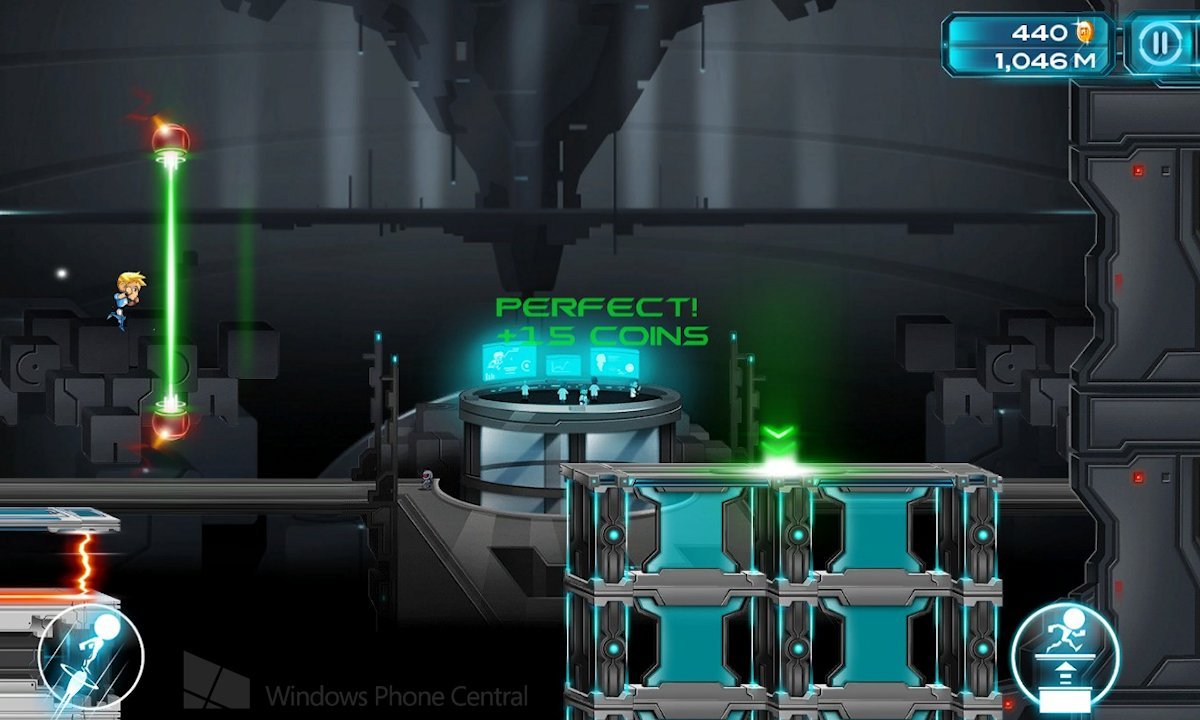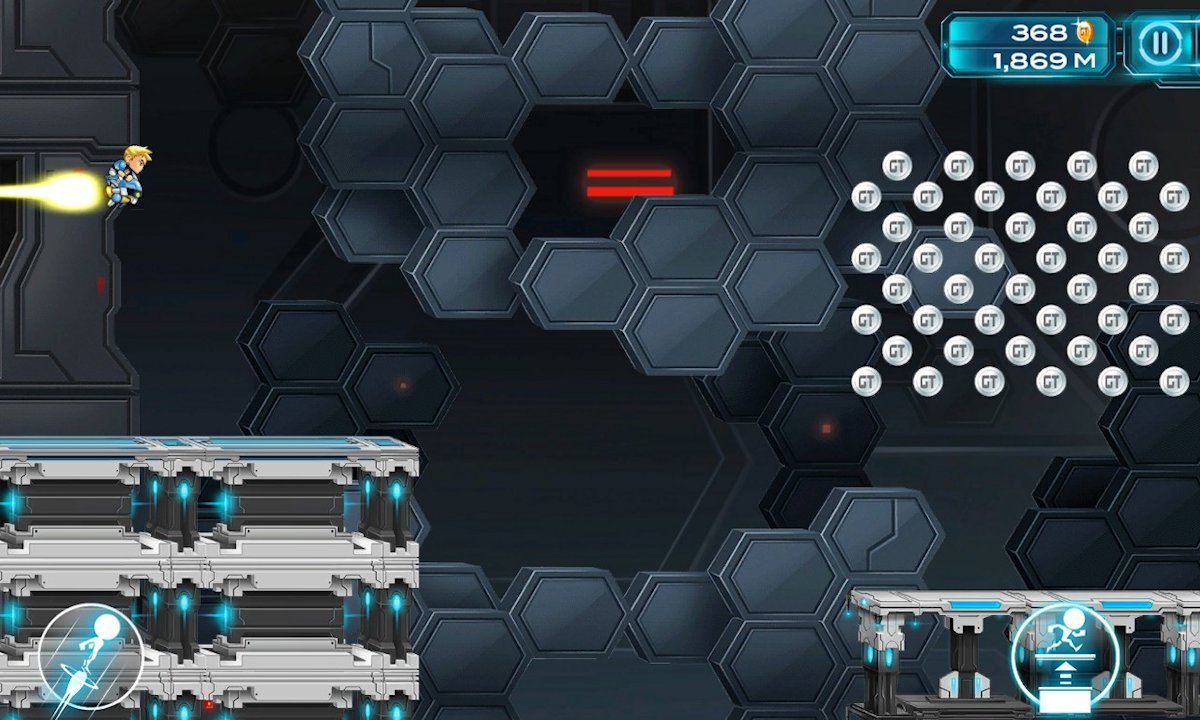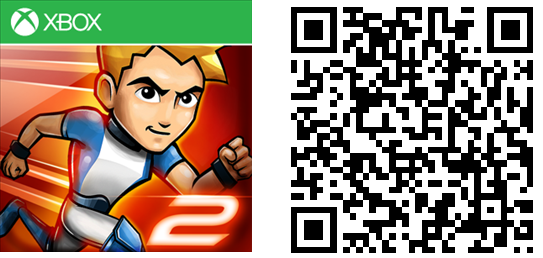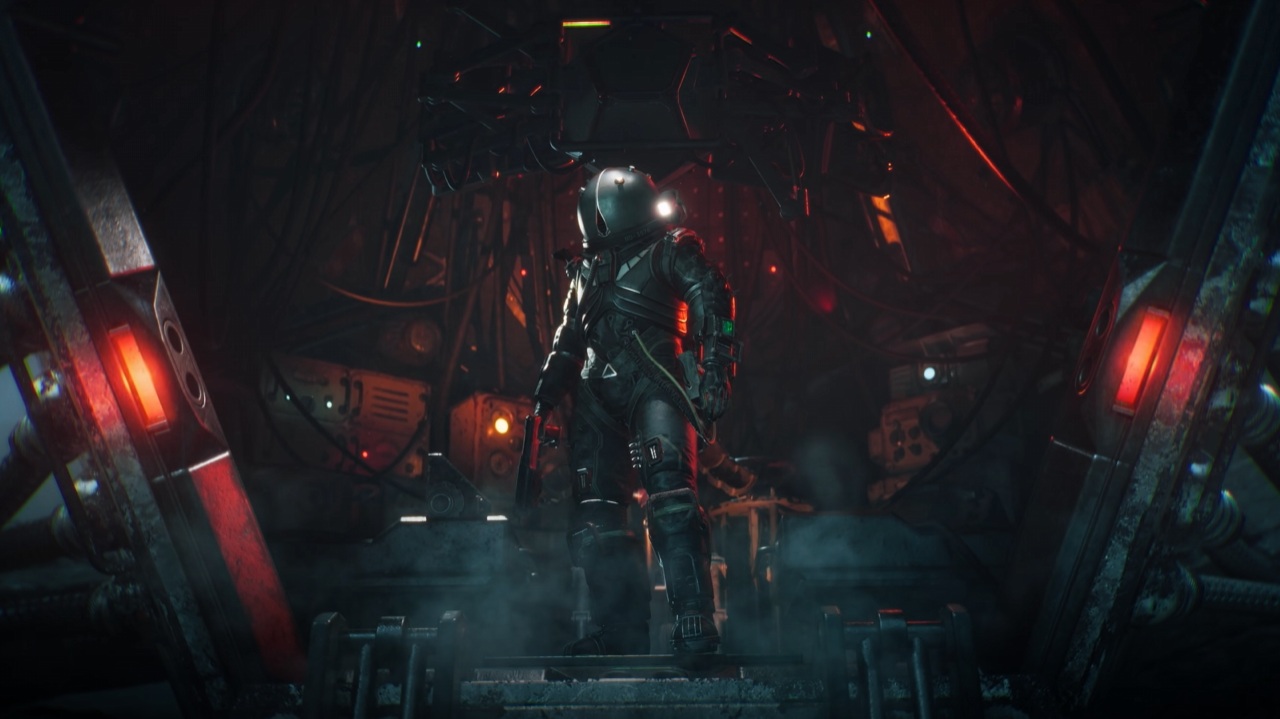Gravity Guy 2 Review: Building a better endless runner on Windows Phone 8

The first Gravity Guy starred a hero wrongfully imprisoned by his evil government for manipulating gravity. He broke out of prison, only to be endlessly pursued by a heartless Gravity Trooper. At the end of the game, Gravity Guy escapes to his freedom.
Gravity Guy 2 disappoints ever so slightly by comparison because all pretense of story is gone. Players control a now-helmetless Gravity Guy, but the cut scene bookends and evil pursuer have vanished. The store description says Guy has been captured and cloned (Miniclip also published this webpage to expand on the premise), but that doesn’t spill over into the game itself.
In fact, the first game’s story mode and local multiplayer are MIA as well. An endless runner doesn’t need these things to keep players entertained, but the lack of context and modes still represents a small step back in an otherwise much improved game. Still! Forget the missing bits, this one really is much better.
Up and down but ever onward

Story or no, Gravity Guy has always been about running from left to right and trying to stay alive as long as possible. The character runs automatically without input from the player.
Part 2 retains those key elements, but the protagonist’s powers have changed for the better. Before, Guy didn’t jump like a traditional platform character. Instead, tapping the screen flipped him up to the ceiling or back down to the ground. Novel, but tricky to get your head around no matter and awfully concentration-intensive.
Miniclip has wisely ditched the gravity flipping for more natural means of locomotion. Tapping the left side of the screen makes Guy jump; tap again in mid-air to do a double jump. It feels good to have a normal jump, and yet surprisingly that’s not Guy’s main way to reach high places…
Gravity Guy 2 packs an all-new mechanic that differentiates it from pretty much any other platformer or endless runner. Tapping the right side of the screen raises whatever platform Guy occupies or will next be jumping on. The longer you touch the screen, the higher the platform rises. It takes a game or two of adjustment, but after that the platform lifting feels better than the cool side of a pillow. You’ll probably lift platforms far more often than you jump.
Get the Windows Central Newsletter
All the latest news, reviews, and guides for Windows and Xbox diehards.
Bonuses

You’ll be doing lots of running, jumping, and lifting in Gravity Guy 2. To help keep the gameplay fresh, the developers have added a couple of skill bonuses to the mix. Many platforms have glowing green lights in their centers. If Guy lands directly on the green light, he gets a perfect landing bonus of several extra coins. Think of the perfect landing mechanic like performing tricks in a racing game; it gives you a little something extra to strive for.
Going after bullseyes works much the same way. Floating beams of light start to appear once Guy reaches a distance of 750m or so, meaning they’re less common. Jump through a beam and you receive a bullseye coin bonus. However, bullseyes present a risk because touching the orbs at either end of the light beam will kill Guy. Farther into a run, the beams become much smaller and harder to jump through safely; I usually end up hitting an orb by mistake.
Hazards

Bullseyes aren’t the only thing that can kill Guy. Since endless runners are also platformers of a sort, the protagonist can of course fall to his death. Or he can run into the floating orbs that occasionally show up separate from bullseyes.
Some platforms are covered in part by deadly red lasers. You might be able to jump over the lasers, but it often requires a combination of platform lifting as well. The lasers’ hit detection is a bit unforgiving, so they probably caused me the most deaths after incorrectly hitting bullseyes.
Major Coinage

Like the first game’s endless mode, one of Gravity Guy 2’s main objectives is to run the greatest possible distance in an increasingly dangerous and randomly generated level. But, borrowing a page from games like Temple Run and Jetpack Joyride, our protagonist must now collect coins as well. As you get farther in a run, silver coins worth 2x replace the bronze ones, and eventually gold coins worth 3x come along as well.
Coins make a delightful sound and pretty much contribute to this version’s addictiveness by orders of magnitude. You don’t just chase high scores now; you accumulate wealth as well. And even when you die, you’re always a little richer than before.
Money wouldn’t mean much without stuff to spend it on. The in-game shop allows players to purchase new characters or temporary powers (which we’ll get to in a bit). There are seven alternate skins to buy, including two females, an android version of Gravity Guy, and a Gravity Trooper from the first game. They all cost massive quantities of coins though, so you might not unlock anybody for a while…
To speed along the process, players can opt to purchase coin packs with real money. The prices range from $1.99 all the way to $19.99, which seems much fairer than Gameloft’s IAP prices. That said, the value of a coin pack feels somewhat nebulous because: how do I know how many power-ups I want to buy? Other than unlocking the characters needed for Achievements, that’s all you’ll spend them on. I wish the shop offered some meaningful permanent bonuses like a coin multiplier.
Powering up and leveling up

Power-ups to buy:
- Amplifier: Increases perfect landing and bullseye bonus
- Boost: Warps Guy ahead at the start of a run
- Jewel Box: Causes valuable jewels to spawn amongst groups of coins
- Magnet: Attracts coins over a small distance
- Revive: Brings Guy back to life once and warps him ahead a short distance
All are fun and useful, though they don’t offer a great return on investment. Powers cost between 1,000-7,500 individually. This may speak poorly of my skills, but I seldom earn much more than 1,000 coins during a run, so I always lose money on power-ups. It might be psychological; I tend to do slightly worse after activating a precious power than I would do otherwise.
Players also earn a few free power-ups whenever they level up. See, you always have three optional goals to accomplish such as running X distance, collecting Y coins, or using a specific power-up. Knock out all three objectives to level up.
Initially you’ll increase the effectiveness of individual power-ups when you level. But after maxing out a power, spending your level up bonus on it gets you a random number of free uses of that power. Goals and leveling add a lot to the game’s longevity, though I found they also caused me to spend coins I would have saved for unlocking characters.
Achievements

The Boost power-up helps with those tricky distance-based Achievements.
Now for the bad news… Gravity Guy 2 suffers from one broken Achievement: ‘Jackpot,’ - collect 4,000 coins in one run. When asked if they would fix the Achievement or not, Miniclip declined to comment. Let’s hope they do the right thing and patch it.
As for the rest, they’re about a jillion times easier than the first game’s. Most can be made easier by equipping the right power-ups, thankfully. One requires players to spend 150,000 coins to unlock the Beauty and Beast characters, so make sure you don’t unlock anyone else before those two!
Difficulty-wise, the Achievement for traveling 5,000m in a single run is the only one that gives me trouble. It could be too tough for some players.
Overall Impression
Given the first game’s hellacious difficulty and weird mechanics, Gravity Guy 2 represents an amazing change of course. Miniclip dumped what didn’t work about the predecessor, greatly increasing the sequel’s appeal. This one could use a bit more personality, but otherwise it succeeds brilliantly at creating an addictive experience from a relatively small amount of content. Even if you consider part one a bust, give its follow-up a try.
Gravity Guy 2 is a 23 MB download for Windows Phone 8. Get it here in the Store for $2.99.

Paul Acevedo is the Games Editor at Windows Central. A lifelong gamer, he has written about videogames for over 15 years and reviewed over 350 games for our site. Follow him on Twitter @PaulRAcevedo. Don’t hate. Appreciate!

